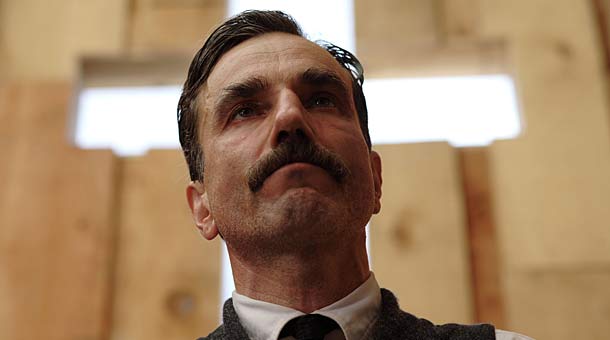
So far the 21st century has been an exciting, variable, and unpredictable period for cinema. While we’ve been seeing less and less movies being shot on 35mm in favor of now ubiquitous and widely accessible digital formats, the following list doesn’t really delve into these trends and it also eschews the gimmicks and populist movements that have been dominating multiplexes as of late (3-D everything holds no footing here and there’s an absence of the enjoyable but often tedious Marvel movies, and while I love Harry Potter and Middle Earth, too, those films can be read about on another list).
The films on this list show a wide-ranging assortment which includes auteur-driven films, influential movies, astonishing international fare, a few blockbusters, plentiful arthouse gems, genre films, and many magnificent female-led projects, too (that’s truly been one of this century’s best progressions), each of which represent the very best of the cinematic artform.
PLEASE NOTE: While listing a mere 25 films means that many worthwhile films and filmmakers had to be left by the wayside, there is a lengthy honorable mentions section at the end of the list.Additionally, the following list does NOT include non-fiction films. A best documentaries list will be forthcoming.
And now, with all that said, here are the best films the 21st century has seen so far. Enjoy!
25. Caché (2005)
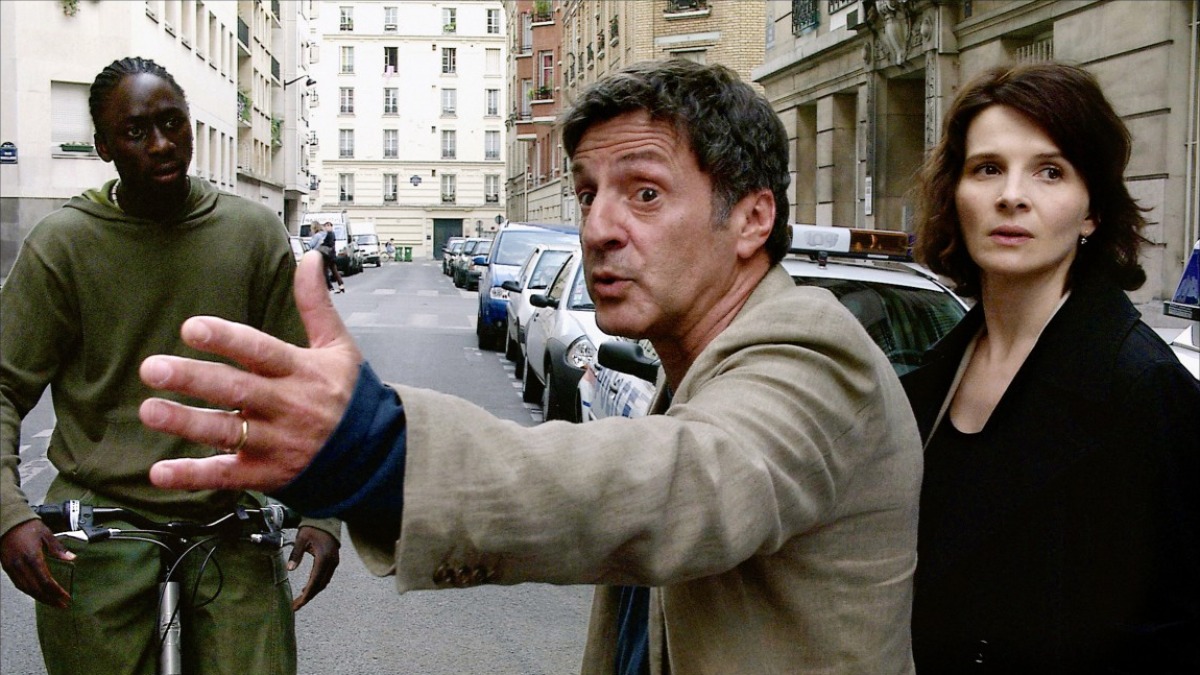
Caché, the eighth film from Michael Haneke (and by the way, both 2009’s The White Ribbon and 2012’s Amour also rank with the century’s finest) uses surveillance and voyeurism as mechanisms for anxiety and suspense. Georges (Daniel Auteuil) and Anne (Juliette Binoche) Laurent are the middle-aged upper-class French couple under attack by unseen forces out to intimidate them.
As Caché unfolds and the Parisian family at its center weather the storm, a superbly crafted and at times extremely upsetting psychological endurance test results, and one that salts the wounds of Western contempt for the Muslim world as the unseen stalker in the Laurent’s lives may well be an abused figure from Georges past. Or is it? Haneke leaves ample clues for the viewer but he obscures them, too. It’s rare that a film takes an almost hostile attitude towards the audience by manipulating, provoking, teasing, and then revealing so little.
The plot becomes riddled with ambiguities and bourgeois guilt mid the dismay of modern identity. It’s not an easy film to watch, but it’s even harder to forget, and ranks among very Haneke’s finest works.
24. Only Lovers Left Alive (2013)
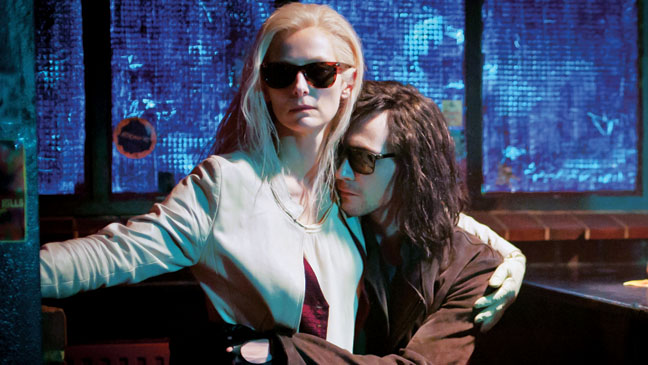
Eve (Tilda Swinton) is one part of an incurably cool vampire couple whose husband, Adam (Tom Hiddleston) is having self-harming thoughts in Jim Jarmusch’s chic shocker, Only Lovers Left Alive.
Tough-as-nails and fiercely romantic, this vampire film is full of leitmotifs involving fear, exhilaration, alienation, isolation, creativity, art, music, literature, life, and death. Its mixture of classic Gothic sensibilities, jets of blood, moments of mortal fear, piercingly sad genuflections, and painfully poignant ruminations on unending love are immensely atmospheric and all but impossible to shake.
As ever, Jarmusch displays a rather outré appetite for beauty in desolation and this tugs sweetly at the film’s terrified suggestion of fractured, disconnected lives, making for a kinetic experiment.
More visual than it is verbal, this elegiac and eerie film displays, amongst other things, the wraithlike dissolution of Detroit, the unearthly otherness of Tangier and many amusing and macabre tableaus of the undead, their uncanny mores and their outlandish dwellings. Only Lovers Left Alive is a visual spree detailing the haunting harmony of ageless sweethearts in perpetual midnight.
23. Upstream Color (2013)
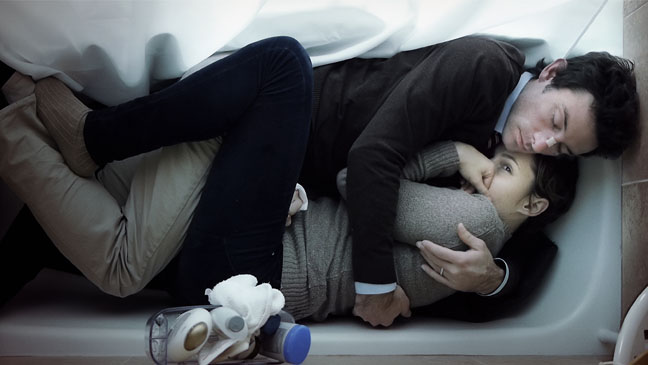
Shane Carruth’s inspired sci-fi follow-up to 2004’s Primer (itself a pocket-sized pearl), Upstream Color, is an otherworldly experience that will make the right kind of adventurous audience absolutely ecstatic and frequently fighting tears of joy and wonder when not wholly hypnotized by its visual versification and bold narrative.
On the surface Upstream Color might sound peculiar and unnecessary as its premise could potentially be mistaken for pretentious experimental odds and ends, but truthfully it works best, perhaps, as a bridge between Stanley Kubrick’s 2001 and early Terrence Malick, in the best possible way.
Amy Seimetz shines as Alex, our put-upon protagonist who finds herself brainwashed into emptying her bank account by a thief (Thiago Martins) who uses a combination of drugs, parasites, and bizarre hypnogogic neuro-linguistic-type programming to dupe her. Alex eventually regains herself and learns she’s not the only one who has been manipulated in this way to similar dubious ends.
Drawn to Jeff (played by Carruth), the two are similarly uncertain of what they lost through their mind-meddling ordeal but, as their lives spiral and entwine, the film, like an amorous Möbius strip, outshines itself, and its heart reaches a hard fought and rather miraculous crescendo.
The artistry on hand is wondrous, with sequences of such aching, ingenious elegance I really wonder how Carruth even dreamt it all up, for it really is the stuff of dreams. Upstream Color ranks high as one of the most transformative and spellbinding cinematic experiences you’re likely to have. Only Carruth’s second film and already he has a pièce de résistance.
22. Zodiac (2007)
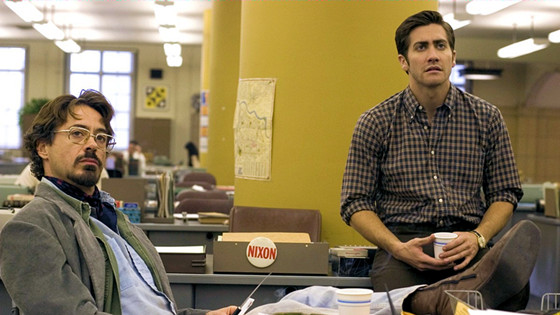
David Fincher’s Zodiac, arguably his first real masterpiece, confounds audience expectation by presenting a tale utterly lacking closure, and yet is still incredibly gripping throughout.
Based on the true story of the ill-famed serial killer and the protracted manhunt he roused that ultimately lead nowhere, Robert Graysmith (Jake Gyllenhaal) is a San Francisco Chronicle political cartoonist––upon whom’s non-fiction book of the same name the film is based––who may just have figured out a way to crack the encrypted letters that the Zodiac has been taunting police and media with, pertaining to his past and future crimes.
Gyllenhaal is mesmerizing as Graysmith, and leads a strong ensemble cast that includes Robert Downey Jr. as crime reporter Paul Avery and Mark Ruffalo as SFPD Inspector David Toschi (also in the A-list cast are Brian Cox, Elias Koteas and Chloë Sevigny).
For all its shaggy-dog digressions, and misleads, Fincher shows an amazing amount of stylish restraint in what adds up to a startling, discomfiting, and troubling tour de force.
21. Lost in Translation (2003)
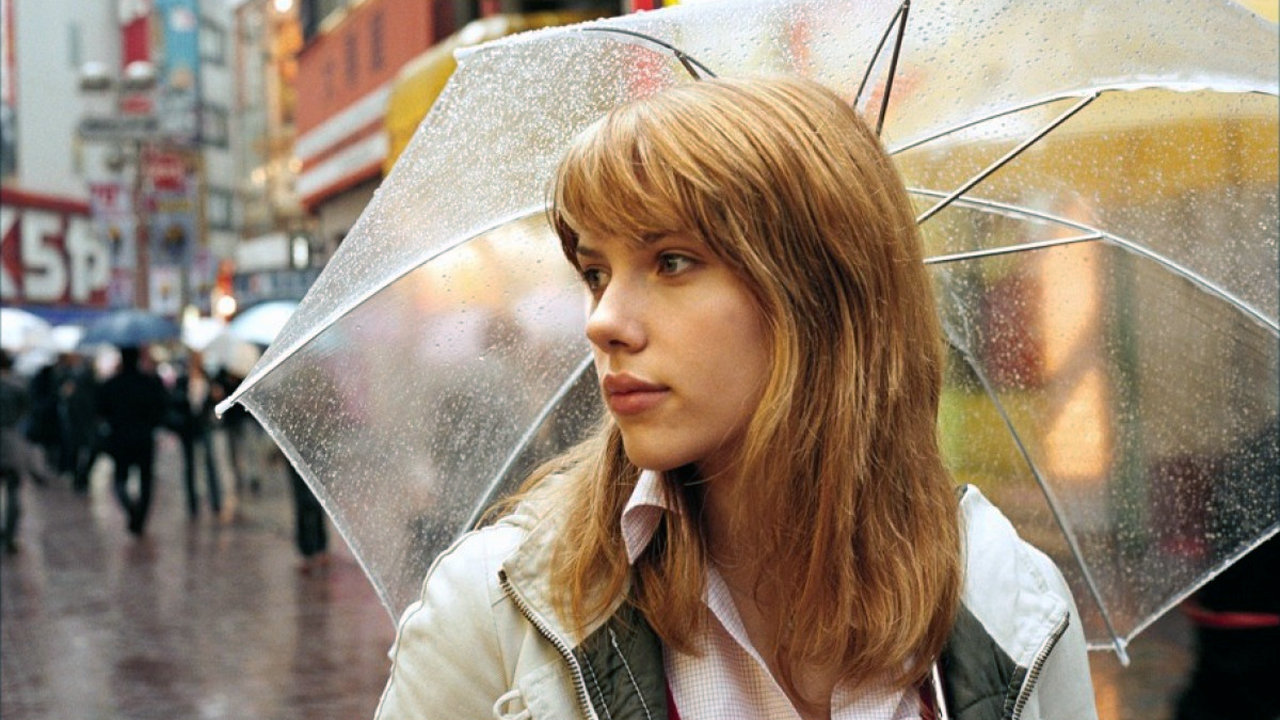
“Melancholy is a topic I’m interested in more than something I deeply feel,” said Sofia Coppola during her press junket back in 2003 for her breakthrough picture, Lost in Translation, adding: “There is indeed some form of melancholy in me, but I’m not the kind of girl who spends her afternoon looking out the window with a sad gaze.”
Lost in Translation is a film about mondaine ennui and alienation, and it netted Coppola a richly deserved Oscar for Best Original Screenplay. Having grown up on film sets––is there anyone out there who doesn’t know that her pop is Francis Ford Coppola?––maybe it isn’t such a shocker that Coppola’s budding auteur status is well founded for such a gifted writer-director.
Lost in Translation’s jetlagged kindred spirits are a conflicted newlywed named Charlotte (Scarlett Johansson) and an aging international movie star Bob Harris (Bill Murray), who together navigate the excited, feverish, and frequently surreal landscape of contemporary Japan.
Their shared stretch in the Land of the Rising Sun is punctuated with platonic explorations including meals, sightseeing, intimate conversation, and the requisite karaoke occurrence. And just when has the delicious fuzz of The Jesus and Mary Chain’s anti-involvement anthem “Just Like Honey” been used so effectively and dismally cool?
20. A History of Violence (2005)
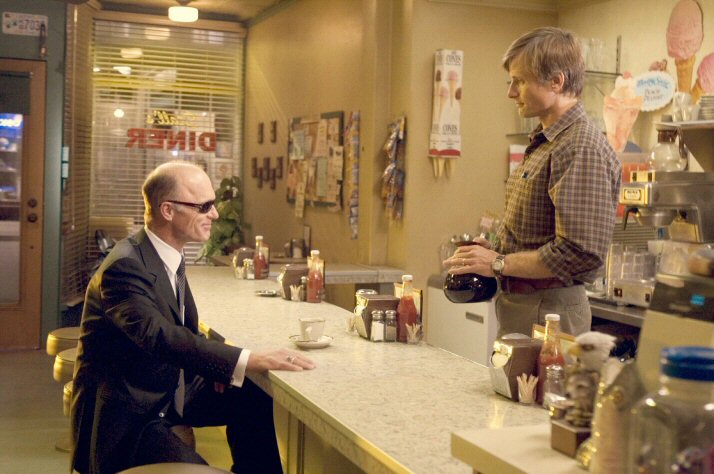
Canadian iconoclast David Cronenberg tackles and takes apart violence, human nature, and the valued American mythology around self-reinvention in this masterful and messy psychological thriller, that’s also one of the best films of the 2000s, hands down.
Tom Stall (Viggo Mortensen) is a small-town family man who runs a diner and who proves startlingly efficient at deadly force when two sadistic thugs (Greg Bryk and Stephen McHattie) turn up at his eatery looking for trouble.
His lethal reprisal suggests a secretive past; his loving wife Edie (Maria Bello), his teenage son Jack (Ashton Holmes), and his daughter Sarah (Heidi Hayes) suddenly see him with new eyes; and there is unwanted attention from the national news media––and from a formidable Philadelphia gangster, Carl Fogarty (Ed Harris), with one hell of an ax to grind.
Cronenberg’s most universally-acclaimed film, A History of Violence also received Oscar nominations for Best Adapted Screenplay (Josh Olson) and Best Supporting Actor (William Hurt)––and truthfully it deserved plenty more.
19. A Field in England (2013)
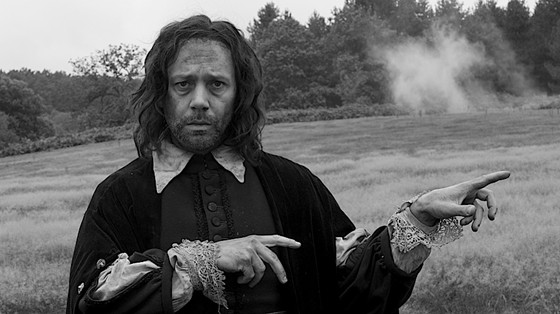
Blurring the lines between dream and reality is a right-hand aspiration for Ben Wheatley, and his fourth feature, the incomparable A Field in England, exemplifies this to the nth degree.
A black comedy masquerading as an arthouse horror film set in mid-17th century England, it’s a movie that sobs and squirms like the bastard child of Jim Jarmusch’s Dead Man (1995) and Michael Reeves’ Witchfinder General (1968), but even those comparisons don’t do the film much justice. It’s so much more than either of those films but you need to start somewhere if you’re to compare such a singular and startling film as this.
Amy Jump outdoes herself with a literate and completely corrupt screenplay that follows Whitehead (Reece Shearsmith) as he absconds from a demonic alchemist named O’Neill (Michael Smiley) amidst a bloody English Civil War battle. Cursed and accompanied by a trio of deserters this ill-starred crew, high on psilocybin mushrooms, are soon at the mercy of O’Neill.
Cinematographer Laurie Rose shoots a monochrome world of creepy close-ups and other odd and ominous tricks as the trippy pastoral mise en scène mutates into a Grand Guignol chamber of horrors. It’s an inspired, utterly loopy, psychotropic Möbius strip that embraces moral ambiguity, resists tidy resolutions, and is more lively and enjoyable than it perhaps ought to be. It’s also the perfect midnight movie if you’re brave enough to visit it.
18. Fish Tank (2009)
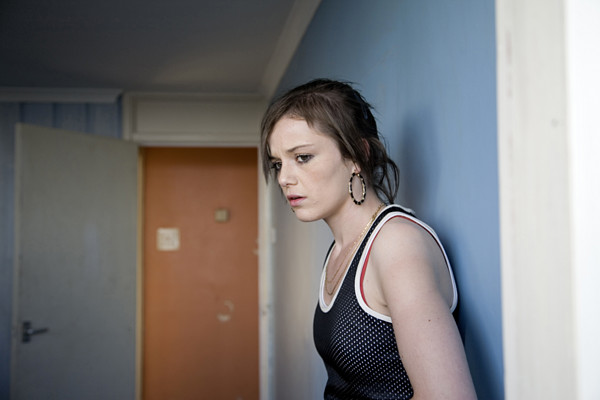
English filmmaker Andrea Arnold (Red Road, American Honey) has a terrific track record of vibrant, uncompromising and wonderfully realized films, but perhaps none are as disquieting, emotionally rich and utterly raw as Fish Tank. Here writer-director Arnold proves an astonishing talent in a story which, in just a few words, tells of fifteen-year-old Mia’s (Katie Jarvis, genius) fragile world turning on its ear when her mother, Joanne (Kierston Wareing) brings home a new boyfriend, Connor (Michael Fassbender).
Fish Tank, arguably Arnold’s best film to date, is a youth-in-trouble masterpiece that is clearly and miraculously demonstrative of Arnold’s keen, clear, and uncanny observations of working-class realism; a bleak and melancholy milieu shared by the likes of Mike Leigh and Ken Loach, Arnold’s spiritual forebears.
An incredibly muscular film on every level––Arnold’s characters especially feel energized and authentic, and you want nothing but the best for them––with a sharp cinéma-vérité vibe, a self-improvised spirit that would make Cassavetes cheer, and an elusive and expansive feeling of innovation and fatalism that puts the film into the upper echelon of world cinema. So few films are this staggeringly sublime and intensely realized. Easily one of the best films of the 21st Century by a visionary and formative filmmaker.